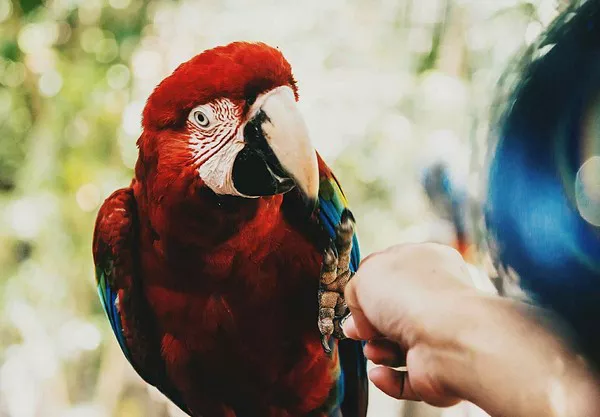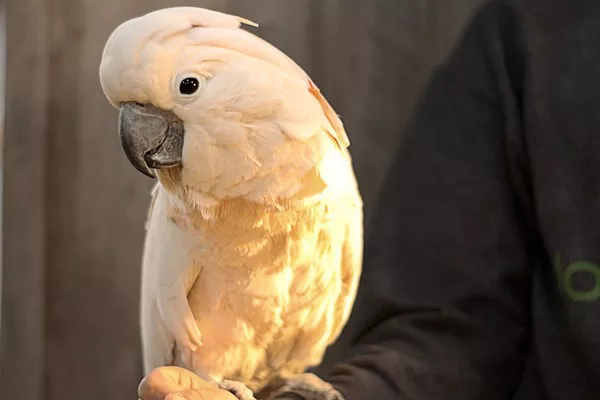Guinea pigs, also known as cavies, are small, herbivorous rodents that are popular pets worldwide due to their gentle nature, friendly personalities, and relatively low-maintenance care requirements. While they are often considered low-risk pets, understanding their behavior and psychological needs is critical for providing them with a safe and happy environment. One of the most important aspects of guinea pig care is recognizing and addressing their fears, as these little creatures are highly sensitive to their surroundings and experiences.
In this article, we will explore what guinea pigs fear most, the reasons behind these fears, and how pet owners can help mitigate these fears to create a more comfortable and stress-free environment for their guinea pigs.
1. Guinea Pigs and Their Sensitive Nature
Guinea pigs, like all prey animals, are naturally cautious and alert. In the wild, their primary instinct is survival, so they have evolved to be highly sensitive to their environment. This means that sudden noises, unfamiliar surroundings, or any signs of potential danger can trigger fear responses in guinea pigs. Understanding their psychology is essential in determining what they are afraid of and how to help them feel safe.
While guinea pigs can become accustomed to certain environments and routines, they remain easily startled by new stimuli. Unlike some other animals that may become curious when faced with an unknown situation, guinea pigs tend to be more passive and seek comfort in familiar settings. This makes them more vulnerable to stress, which can negatively impact their overall health if not managed properly.
2. Common Fears of Guinea Pigs
Guinea pigs experience a wide range of fears that can manifest in various ways. These fears can be triggered by environmental factors, sudden changes, or even specific interactions with humans and other animals. Below are some of the most common fears guinea pigs experience:
Loud Noises
Guinea pigs have extremely sensitive hearing, which is a trait that helps them detect predators in the wild. In a domestic setting, loud noises can cause them significant distress. Sounds such as vacuum cleaners, loud music, clattering dishes, or even raised voices can trigger a fear response in guinea pigs. They may freeze in place, run for cover, or even try to hide in their cages. Prolonged exposure to loud noises can lead to chronic stress, which can weaken a guinea pig’s immune system and cause various health issues.
To minimize the risk of triggering a guinea pig’s fear, pet owners should be mindful of noise levels in the home. Keeping the environment quiet and calm, particularly during their active hours, is crucial. If loud noises are unavoidable (e.g., vacuuming), it is best to relocate the guinea pig to a quieter space temporarily.
Sudden Movements
Guinea pigs are particularly sensitive to sudden movements. Fast movements or unpredictable gestures can make them feel threatened and unsafe. This can include rapid hand movements, sudden approaches, or abrupt changes in their environment, such as moving their cage or furniture around them.
When interacting with guinea pigs, it is important to approach them slowly and calmly. Sudden jerky movements can startle them and cause fear or anxiety. Pet owners should always ensure their guinea pig feels in control of the situation by allowing them to move freely and at their own pace.
Predatory Animals
As prey animals, guinea pigs are instinctively afraid of predators. In the wild, they are vulnerable to various carnivores, such as foxes, birds of prey, and snakes. Even in a home setting, guinea pigs retain these instincts and can feel threatened by animals that they perceive as predators.
Common household pets such as dogs and cats are often seen as threats by guinea pigs. While some guinea pigs may become accustomed to the presence of other pets, many will remain fearful and stressed around them. This is why it is crucial to always supervise interactions between guinea pigs and other animals. A cat’s predatory gaze or a dog’s barking can easily cause a guinea pig to become frightened or anxious.
Unfamiliar People
Guinea pigs are social animals, but they are also creatures of habit and can be wary of unfamiliar individuals. If a guinea pig is not used to a person, it may initially show signs of fear, such as hiding, vocalizing, or trying to flee. This behavior is often a result of a lack of familiarity with the new person’s scent and voice. It is essential for new people to approach guinea pigs gently and without sudden movements to allow the animal to adjust to their presence.
Once guinea pigs become familiar with a person, they typically feel more comfortable and are more likely to engage. However, it is important to give them time and space to form bonds and trust.
Lack of Socialization
Guinea pigs are social creatures that thrive in the company of others. They are highly social animals that enjoy the presence of other guinea pigs and can become stressed and fearful when left alone for extended periods. Loneliness can lead to a variety of behavioral and emotional problems, including depression and anxiety.
In the wild, guinea pigs live in groups for safety and companionship. If a guinea pig is kept alone without regular social interactions, it may become withdrawn, fearful, and even aggressive. If possible, guinea pigs should be kept in pairs or small groups to help meet their social needs. If keeping more than one guinea pig is not an option, pet owners should spend ample time interacting with them each day.
Changes in Environment
Guinea pigs are creatures of habit, and any significant changes to their environment can trigger anxiety or fear. A move to a new home, the rearrangement of their cage, or even the introduction of new objects into their space can cause them distress. Guinea pigs may respond to these changes by becoming shy, hiding more often, or vocalizing more than usual.
To minimize stress during changes, pet owners should make transitions as gradual as possible. When introducing a new cage or moving their guinea pig to a new location, try to maintain a similar layout to their old environment. Keeping their routine consistent and providing them with familiar toys, bedding, and hiding spots can help ease the adjustment.
Being Handled Improperly
While guinea pigs generally enjoy being held and petted, they can develop a fear of handling if it is not done properly. Rough or inconsistent handling can make them feel insecure and anxious. Guinea pigs are delicate animals, and improper handling can cause physical harm or trigger stress.
When holding a guinea pig, it is essential to support its body properly. One hand should support its chest, while the other should support its hindquarters. Never pick up a guinea pig by the scruff of its neck or its limbs, as this can cause injury. Handling should be done gently, and guinea pigs should always be allowed to return to their cage when they feel uncomfortable.
Illness or Injury
Guinea pigs can be particularly fearful when they feel unwell or are in pain. Like many animals, they may not show obvious signs of illness until it becomes severe, and their fear can be exacerbated by the feeling of vulnerability. If a guinea pig is ill or injured, it may display behavior such as hiding, lack of appetite, or excessive vocalization. Fear of being handled during a vet visit or being subjected to medical treatments can also lead to stress.
When taking a guinea pig to the vet, it is important to handle them as gently as possible and to ensure that the experience is as stress-free as possible. If a guinea pig is sick or injured, it should be kept in a quiet and comfortable space to help them recover.
Overcrowding or Unfamiliar Guinea Pigs
While guinea pigs are social, they do not always tolerate the presence of other guinea pigs, especially if they are unfamiliar with them. Overcrowding can also cause stress and fear, particularly if guinea pigs feel that their personal space is being invaded. Aggressive behavior can emerge in situations where guinea pigs feel threatened or anxious about sharing space with others.
To prevent stress and aggression, guinea pigs should be introduced to new companions gradually, allowing them time to adjust and establish their social hierarchy. It is also important to ensure that their living space is large enough to accommodate all the guinea pigs comfortably, with plenty of hiding spots and food.
3. How to Help Guinea Pigs Overcome Their Fears
As a pet owner, one of the most important things you can do is create a safe and supportive environment for your guinea pig. Here are some tips to help minimize fear and anxiety:
Provide a Calm Environment: Minimize loud noises, sudden movements, and chaotic environments that can stress your guinea pig. Keep their space quiet and peaceful, especially during their active hours.
Socialize Regularly: Spend time interacting with your guinea pig daily, but allow them to approach you on their terms. Guinea pigs often feel more secure when they have a consistent routine and familiar interactions.
Offer Hiding Places: Guinea pigs love having places to retreat to when they feel scared or stressed. Provide plenty of hiding spots in their cage or play area, such as tunnels, boxes, or huts.
Respect Their Boundaries: Avoid forcing your guinea pig into situations where they feel uncomfortable. Always allow them time to adjust to new people, pets, or environments at their own pace.
Keep a Consistent Routine: Guinea pigs feel safest when their daily routines are predictable. Try to maintain consistent feeding times, playtime, and cage cleaning schedules to help them feel more secure.
Create a Safe Space for Vet Visits: To minimize fear during vet visits, try to make the experience as calm as possible. Transport your guinea pig in a comfortable carrier and give them plenty of time to acclimate to the new surroundings.
Conclusion
Guinea pigs are intelligent, sensitive creatures with a variety of natural fears that can significantly affect their well-being if not managed properly. Understanding their behavior and the things that scare them is essential for creating a safe and comfortable environment. By addressing their fears and providing them with the right care, guinea pigs can live happy, healthy lives as beloved pets. Whether it’s minimizing loud noises, providing a safe and calm environment, or allowing them time to socialize, understanding their needs is the key to ensuring their happiness.
Related Topics:




















